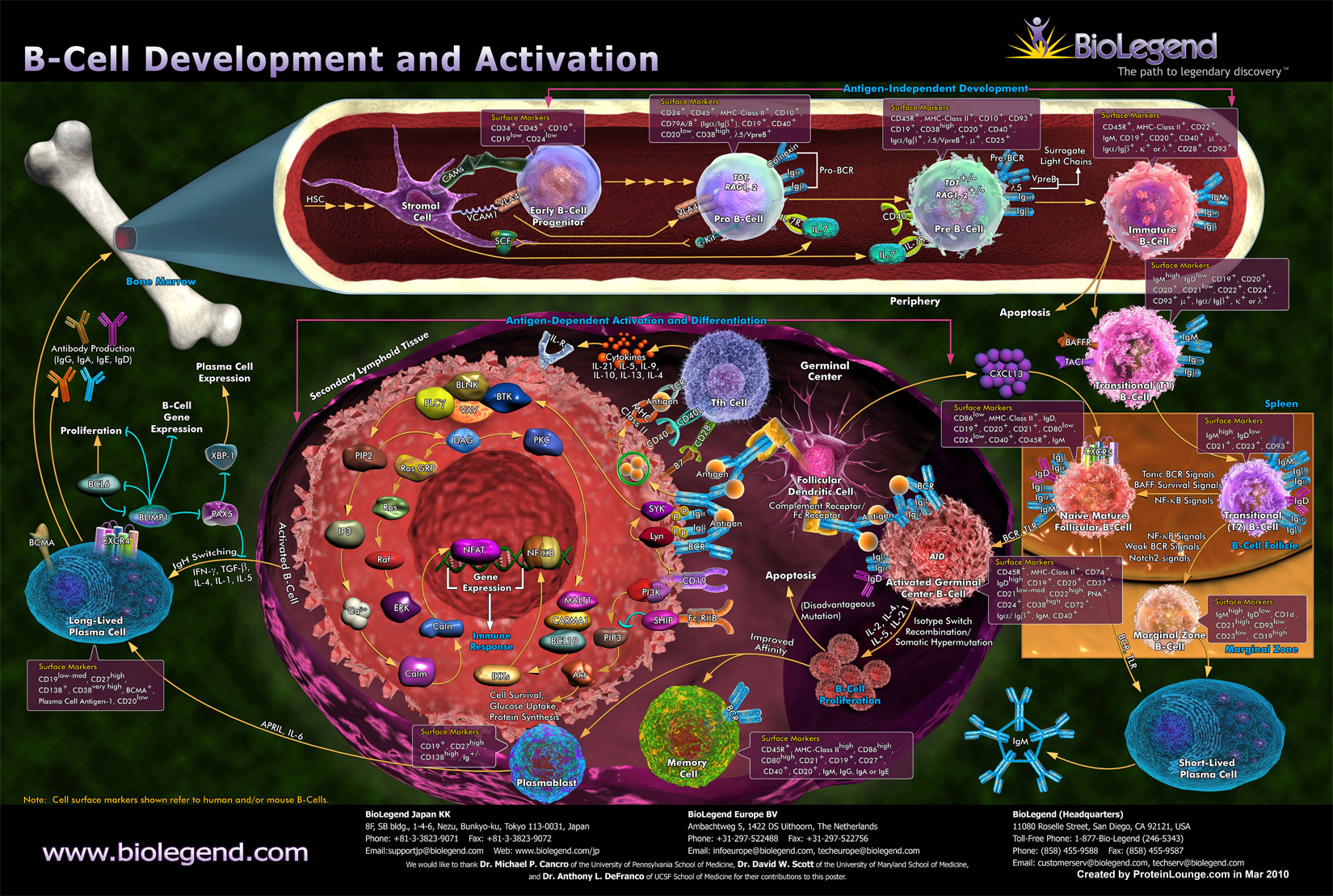B cell Development and Activation
B cells play an important role in the humoral response of adaptive immunity by secreting immunoglobulins and priming the inflammatory response by antigen presentation. After lineage commitment, B cell development primarily occurs in the bone marrow where cells undergo immunoglobulin rearrangement via V(D)J recombination. Upon presentation of a fully rearranged B cell receptor, immature B cells migrate to the follicles in secondary lymphoid organs where they encounter antigen and undergo class switch recombination and somatic hypermutation to generate different immunoglobulin subtypes and higher affinity immunoglobulins, respectively. Through affinity maturation, B cells producing high-affinity antibodies differentiate into plasma cells and migrate to the periphery to secrete immunoglobulins.
Click on the poster below to view the interactive version.
 Login / Register
Login / Register 








Follow Us